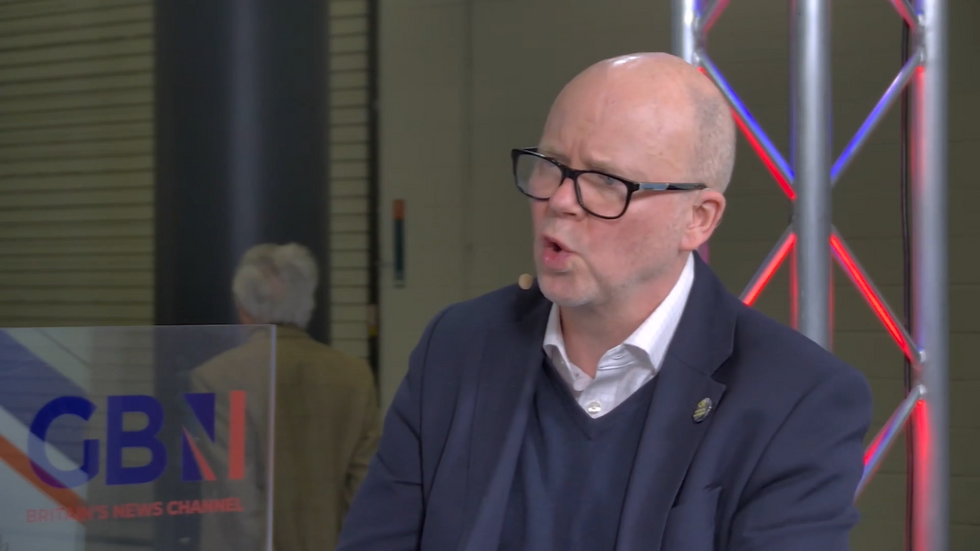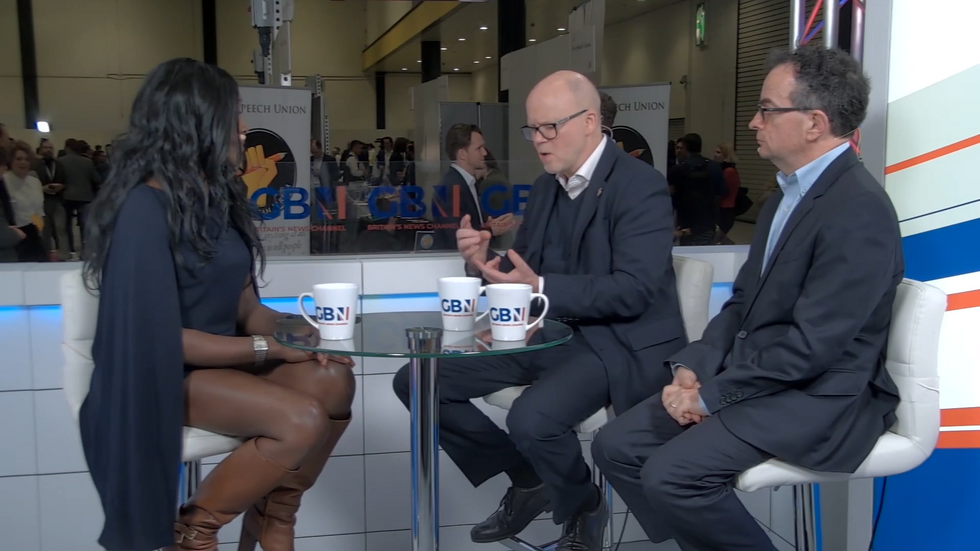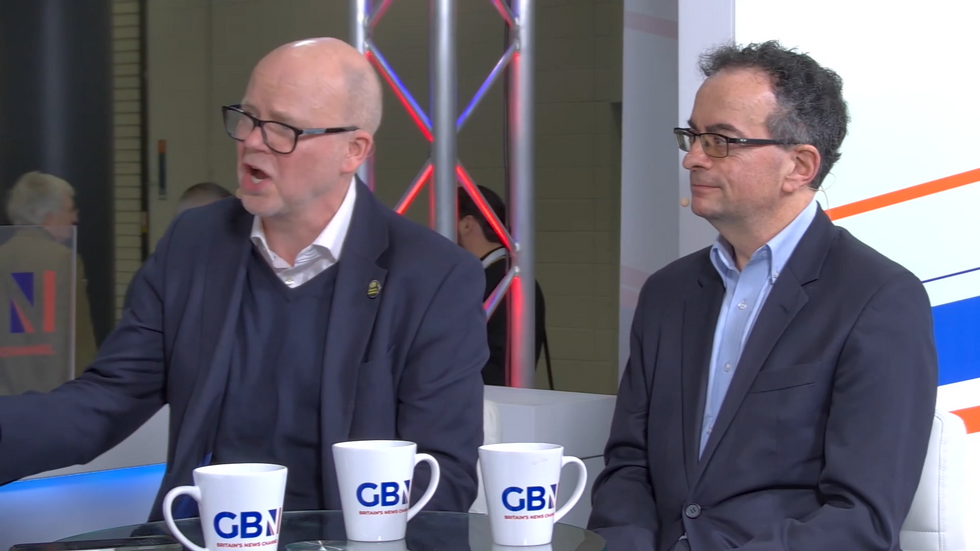Toby Young’s plan to SAVE free speech in Britain as he pinpoints exactly where line should be drawn – WATCH
Free Speech Union founder Toby Young has called for stronger free speech protections in Britain, similar to America’s First Amendment.
Speaking at the ARC Conference, Young outlined his vision for where the boundaries of free expression should be drawn in British law.
In remarks to GB News, he detailed specific exemptions whilst advocating for broader speech freedoms within “fairly strict narrow limits”.
Young specifically outlined where free speech protections should end, stating: “I wouldn’t defend libel.”

“I don’t think the right to free speech includes the right to libel someone and I wouldn’t defend betraying state secrets,” he told GB News.
He emphasised this point by repeating: “I certainly wouldn’t defend betraying state secrets.”
LATEST DEVELOPMENTS
- Mum breaks silence after being branded ‘neo-Nazi’ for raising concerns over trans books in school
- Nigel Farage SLAMS Zarah Sultana for ‘attack on free speech’ ahead of Reform rally
- ‘Soft touch!’ Security expert calls for conscription in UK as it is ‘time to save the West’

Within these boundaries, Young advocated for broad speech freedoms, stating that “people should be permitted to say whatever they like.”
He specified this freedom should exist “provided it’s not going to lead to violence, it’s not going to lead to a breach of the peace.”
Young referenced a landmark US Supreme Court case, suggesting speech should be permitted unless it would lead to what he called “imminent lawless action.”
He drew a direct comparison with US free speech protections, noting that many British laws would not pass constitutional muster across the Atlantic.

“Many of the laws which criminalise speech in this country for stirring up emotions wouldn’t survive the First Amendment challenge in the United States,” he said.
The Free Speech Union founder argued that current British laws restricting speech based on emotional impact lack the robust protections found in American legislation.
Young concluded by calling for the introduction of First Amendment-style protections in British law.
“This is why we need something, like the First Amendment, here to protect free speech,” he told GB News.
His remarks highlighted a push for constitutional-level safeguards for free expression in Britain, while maintaining specific restrictions on libel, state secrets and speech likely to cause immediate harm.

